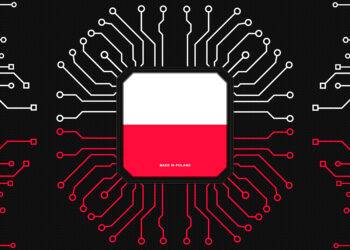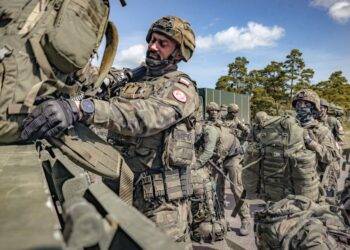Polish Prime Minister Donald Tusk expressed skepticism regarding Hungarian Prime Minister Viktor Orban’s visit to Moscow, part of what Orban describes as a “peace mission.” The visit, aimed at facilitating dialogue with Russian President Vladimir Putin, has sparked controversy and concern among European leaders.
Prime Minister Viktor Orban arrived in Moscow on Friday morning, with his government’s spokesperson announcing the trip as part of a broader “peace mission.” According to Orban, this initiative aims to take the first step towards achieving peace. “I will be an important tool in making the first step towards peace,” Orban stated, emphasizing his role in mediating discussions. However, he did not clarify how this mission aligns with existing diplomatic efforts or what specific outcomes he anticipates.
Tusk’s Response
Donald Tusk, a vocal critic of Russian aggression and a strong advocate for European unity, commented on Orban’s visit via social media. “Orban is on his way to Moscow claiming to be an ‘important tool in taking the first step towards peace.’ The question remains, in whose hands is this tool?” Tusk’s remark highlights the uncertainty and potential risks associated with Orban’s approach, questioning the Hungarian leader’s intentions and the efficacy of his peace mission.
Von der Leyen’s Stance
European Commission President Ursula von der Leyen also weighed in on the situation, underscoring the necessity of a unified and determined approach to achieving peace in Ukraine. “Concessions will not stop Putin. Only unity and determination will pave the way to a comprehensive, just, and lasting peace in Ukraine,” von der Leyen stated. Her comments reflect a broader European sentiment that any diplomatic efforts must align with the collective strategy to counter Russian aggression.
Background and Reactions
Viktor Orban’s visit to Moscow comes at a time of heightened tensions and ongoing conflict in Ukraine. The Hungarian Prime Minister has often been criticized for his perceived closeness to Putin and his government’s sometimes contradictory stance within the European Union. Orban’s trip is seen by many as a deviation from the EU’s collective diplomatic efforts, raising concerns about its potential impact on European solidarity.
Donald Tusk, a prominent figure in European politics and former President of the European Council, has consistently advocated for a firm stance against Russian aggression. Tusk’s skepticism towards Orban’s mission reflects broader doubts among EU leaders about the Hungarian Prime Minister’s true motives and the likelihood of his success in fostering peace.
Ursula von der Leyen’s statement reinforces the EU’s official position that unity and a steadfast approach are essential in dealing with Russia. The European Commission has been vocal about the need for a cohesive strategy to support Ukraine and counteract Russian influence.
As Orban continues his visit in Moscow, the international community watches closely, with leaders like Tusk and von der Leyen emphasizing the importance of a united front in achieving lasting peace. The outcome of Orban’s discussions with Putin remains uncertain, but the skepticism expressed by European leaders underscores the complex dynamics at play in the pursuit of peace in Ukraine.


















